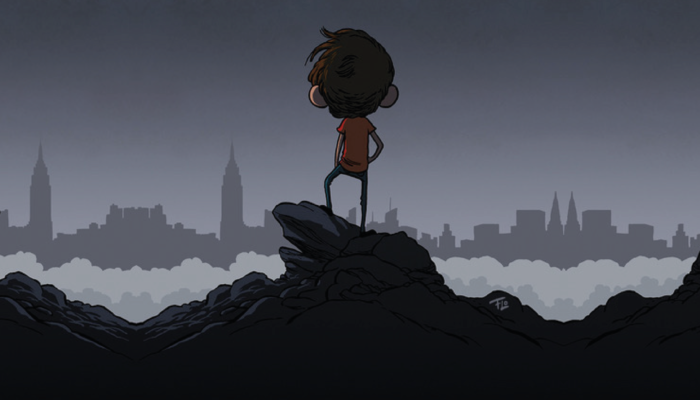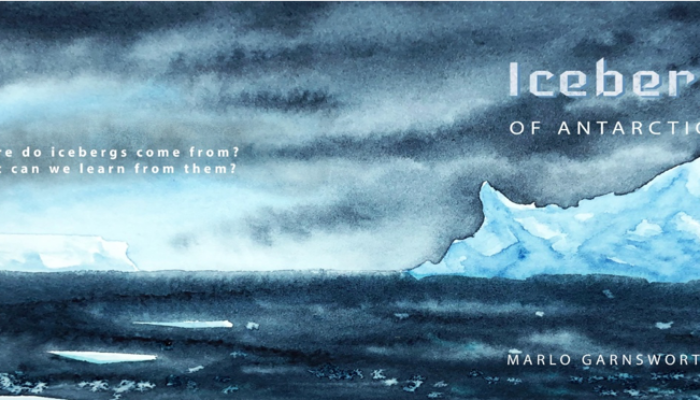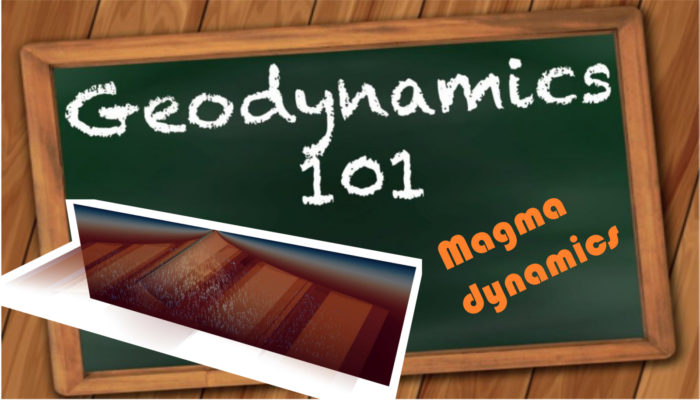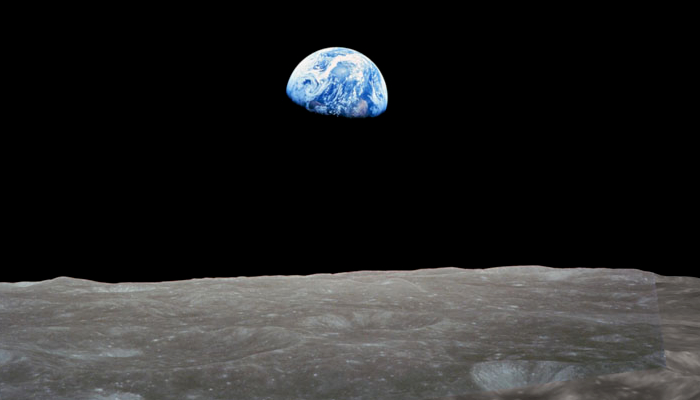Every week, The Sassy Scientist answers a question on geodynamics, related topics, academic life, the universe or anything in between with a healthy dose of sarcasm. Do you have a question for The Sassy Scientist? Submit your question here or leave a comment below. In a comment on a post about the key papers in geodynamics, the Curmudgeonly Commenter asked: Could you please point out some exceptio ...[Read More]
Climate: Past, Present & Future
Habits in numerical model construction
Numerical models are omnipresent in climate research. Constructed to understand the past, to forecast future climate and to gain new knowledge on natural processes and interactions, they enable the simulation of experiments at otherwise unreachable time and spatial scales. These instruments have long been considered to be fed – let even determined – by either theories or observations alone. ...[Read More]
Geodynamics
Dancing on a volcano – the unspoken scientific endeavour
Doing science is not a walk in the park. In fact, it might be closer to dancing on a volcano. Dan Bower, CSH and Ambizione Fellow at the University of Bern, Switzerland, takes full advantage of the creative freedom of a blog post to reiterate that scientific progress is not a straight-forward endeavour. We all learn early in our education about the scientific method—the scientific approach t ...[Read More]
Stratigraphy, Sedimentology and Palaeontology
The hard part of life: the secrets of biomineralization
Biomineralization is a fascinating natural process by which living organisms produce hierarchical mineral structures with diverse functions. The “secrets” of biomineralization are explored by the scientists since decades but there are still open questions regarding its function, the regulating mechanisms and why and when biomineralization started.This process occurs through self-organization of or ...[Read More]
Cryospheric Sciences
Cryo-Comm – Capturing Ice
In this week’s blogpost, author, editor, artist, and outreach expert Marlo Garnsworthy gives some insights into her recent trip to Iceberg Alley, gives you some tips on how to communicate icy science, and shows us her inspirational artwork. If you’re reading this, ice may be on your mind. Ice is surely on mine. During my day job as a creative and editor, I dip frequently into Twitter for the lates ...[Read More]
Geodynamics
The Sassy Scientist – Earthquake Exoteries Nr. II
Every week, The Sassy Scientist answers a question on geodynamics, related topics, academic life, the universe or anything in between with a healthy dose of sarcasm. Do you have a question for The Sassy Scientist? Submit your question here or leave a comment below. In a comment on a post about the key papers in geodynamics, the Curmudgeonly Commenter asked: Could you please point out some exceptio ...[Read More]
Seismology
Seismology Job Portal
On this page we regularly update open positions in Seismology. Do you have a job on offer? Contact us at ecs-sm@egu.eu
Geodynamics
Magma dynamics
In this week’s Geodynamics 101 post, Juliane Dannberg, Assistant Professor at the University of Florida, outlines the role of mantle melt generation and transport in geodynamics. Mantle melting and magma transport are important influences on the dynamics and chemical evolution of the Earth’s interior. All of Earth’s oceanic crust and depleted oceanic lithosphere is generated through melting ...[Read More]
Hydrological Sciences
Hydrologists Join Youth-Led #GlobalClimateStrike
In a powerful sign of solidarity, adults from across an estimated 185 countries took to the streets to join last Friday’s youth-led Global Climate Strike, the largest climate protest in history. Among those in attendance were hydrologists from around the world, who stood shoulder to shoulder with young people to support their calls for immediate climate action. As a hydrologist who participa ...[Read More]
Tectonics and Structural Geology
Beyond Tectonics: Can only tectonically active planets sustain life?
This edition of “Beyond Tectonics” is brought to you by David Waltham. David is a professor of Geophysics at Royal Holloway who studies Geology, Astronomy and Astrobiology. His current research focus is on whether the Earth is “special” because it is habitable, or if the Earth is one of a vast amount of life-bearing planets. “Is Earth Special? Do we live on a typical rocky ...[Read More]








